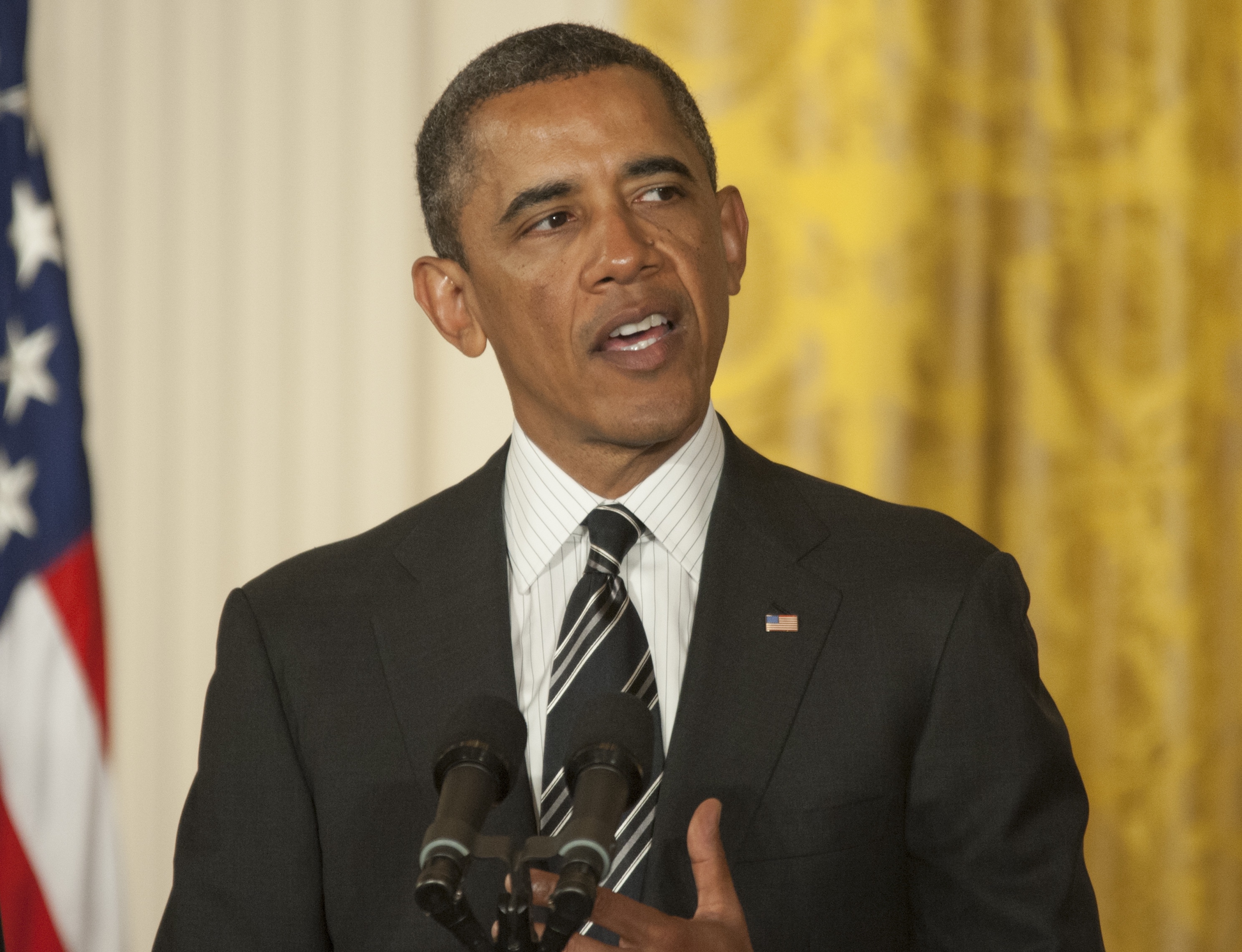President: Sony Made Mistake by Pulling 'The Interview'

The smarter way to stay on top of broadcasting and cable industry. Sign up below
You are now subscribed
Your newsletter sign-up was successful
President Barack Obama said Friday that he thought Sony had made a mistake by pulling The Interview from theaters.
That came in a press conference Friday where the first question was about "the hack." Sony CEO responded that Sony had not made a mistake.
The President said he sympathized with Sony's concern about liability, but said he wished that Sony had spoken to him first because he would have told them not to get into a pattern where they would be intimidated by that kind of attack. "Yes, it was a mistake," he concluded. "We cannot have a society in which some dictator someplace can start imposing censorship on the United States because, if somebody is able to intimidate someone out of releasing a satirical movie, imagine what they will start doing if they see a documentary they dont' like, or news reports that they don't like. Or even worse, imagine if producers and distributors and others start engaging in self-censorship because they don't want to offend the sensibilities of somebody whose sensibilities probably need to be offended."
He said that was "not what America is about."
He said the Administration had engaged the entertainment and news industries over cybersecurity issues and would continue to do so.
He said the country should not change its patterns of behavior any more than they would not go to a football game because there "might be the possibility of a terrorist attack," or any more than Boston didn't run its marathon this year. "Let's not get into that way of doing business."
Sony CEO Michael Lynton told CNN in an interview Friday that Sony did not make a mistake and that the President, the media, and the press were mistaken about what actually happened.
The smarter way to stay on top of broadcasting and cable industry. Sign up below
He said the company had not caved, given in or backed down. After the worst cyber attack in American history, he said, Sony Pictures persevered for three weeks to keep the business up and running and to get the movie out, but after the threat made to theatergoers, theater operators said they would not show the film and the company had no choice but to cancel the Dec. 25 release — but that was all it had done. He said Sony still has "every desire" for the public to see the movie. We do not own movies theaters, he emphasized, and said Sony was "completely surprised" by the theaters' decision.
Lynton also told CNN's Fareed Zakaria he did talk to a senior White House official "a few days ago" and informed them that Sony "needed help."
Lynton said Sony continues to consider online or VOD options for distributing the movie, but no major VOD distributor or e-commerce site has stepped forward. He told Zakaria that he would make the movie again, though knowing what he knows now he might have done some things slightly differently. "We would still like the public to see this movie," he said.
Zakaria reported that one of the distribution alternatives they are considering is free play on YouTube.
In his press conference, the President confirmed that North Korea engaged in the attack and thought it said something about the country that it chose a Seth Rogen movie as a threat worth mounting an attack over. "That gives you some sense of the kind of regime we are talking about here.” But after joking about loving Seth Rogen and James Franco, he got serious. “They caused a lot of damage and we will respond proportionally and in a place and time and manner of our choosing.” He would not say how and when that would be.
"In this interconnected, digital world, there are going to be opportunities for hackers to engage in cyber assaults in the private sector and the public sector," he said. "Our first order of business is making sure we do everything to prevent those kinds of events." But he said a lot more needs to be done. "We're not even close to where we need to be."
The President suggested that pulling the movie was like giving in to terrorist threats.
The President put in a plug for stronger cybersecurity laws that allow for more information sharing — such legislation did not pass in the last Congress. He said Congress needed to pass a bill or such attacks will not just be affecting movies.
Contributing editor John Eggerton has been an editor and/or writer on media regulation, legislation and policy for over four decades, including covering the FCC, FTC, Congress, the major media trade associations, and the federal courts. In addition to Multichannel News and Broadcasting + Cable, his work has appeared in Radio World, TV Technology, TV Fax, This Week in Consumer Electronics, Variety and the Encyclopedia Britannica.

